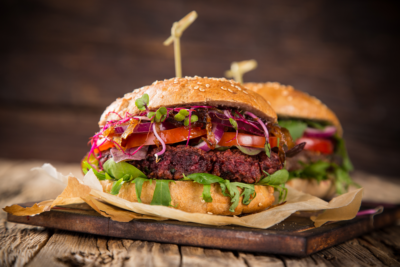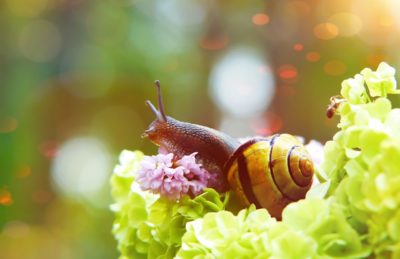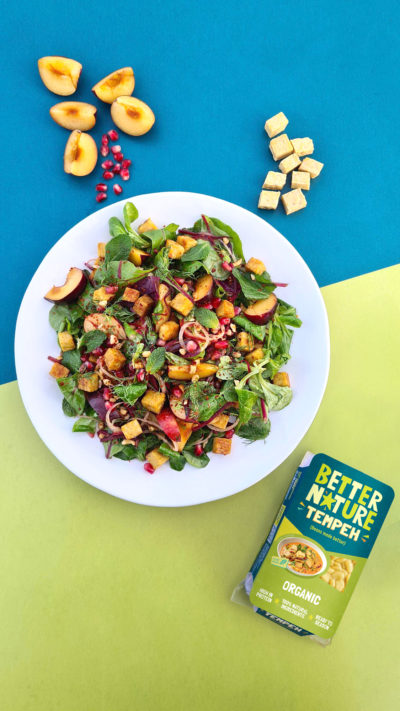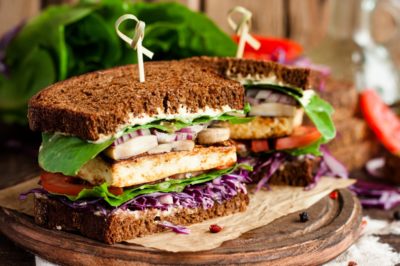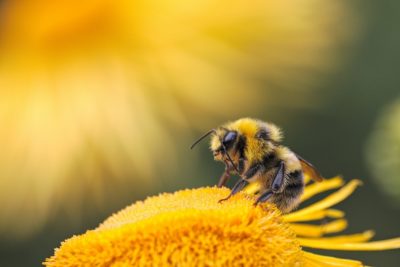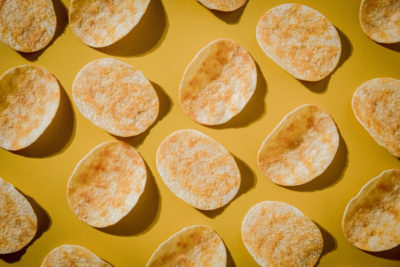Not sure how to meet your nutritional requirements? Dr Greger’s Daily Dozen is a lifesaving tool for new vegans.
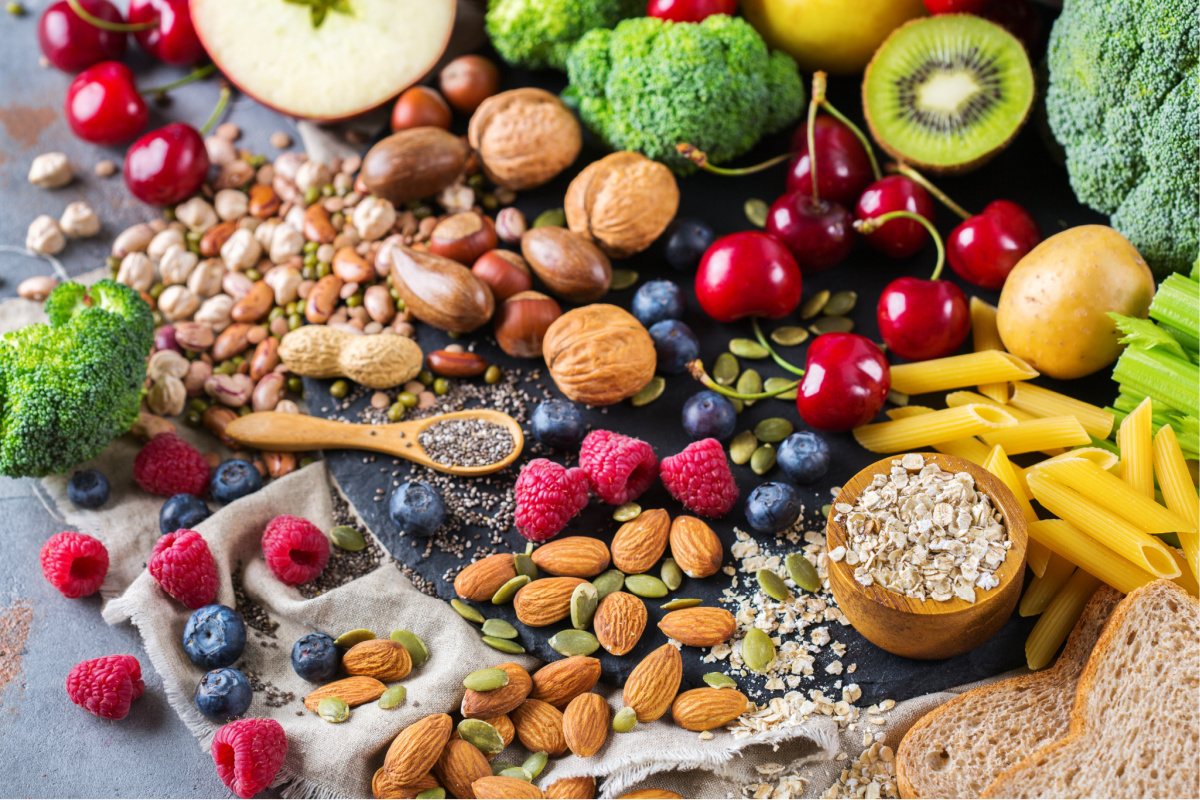
Dr Michael Greger’s fantastic book, ‘How Not to Die,’ offers some great (and simple) suggestions for a healthy, balanced plant-based diet.
The book includes his nutrition framework, the Daily Dozen, which is a list of essential plant foods you should eat every day for optimum health and well-being. He also recommends serving sizes for each food, making it easier to ensure you’re eating the right amounts.
How does the Daily Dozen work?
When trying vegan, it’s normal to feel overwhelmed by nutrition because much of the information may be new to you.
You might worry about getting all the nutrients you need. But using Dr Greger’s Daily Dozen as a template for creating your tasty vegan meals means you can enjoy plant-powered living without being confused.
To make the Daily Dozen fuss-free, we’ve created a checklist and planner you can print off and stick on your fridge or kitchen cupboard:
Here are some food sources and serving size suggestions from Dr Greger’s book to help you understand how to use the Daily Dozen and to ensure you’re getting the nutrients you need every day.
Beans
Beans are staple foods in a plant-based diet, packing plenty of protein, fibre and other key nutrients.
Fill up on black beans, butter beans, cannellini beans, chickpeas, lentils, edamame/soya beans, peas, kidney, haricot and pinto beans. Enjoy them in salads, chilli dishes or even homemade burger patties.
Serving sizes:
- 60g hummus or bean dip – (3 tbsp)
- 130g cooked beans, lentils, tofu – (1/3 tin/can beans, drained or 1/3 standard tofu block)
- 150g fresh peas or sprouted lentils
Berries
Berries are versatile foods you can enjoy fresh, frozen, blended, dried or straight from the pack.
They’re also the healthiest fruits. Colourful foods are often healthier because they contain antioxidant pigments. The colours are the antioxidants, which means red onions have more than white, red grapes have more than green, red apples have more than green, etc.
Include plenty of acai berries, barberries, blackberries, blueberries, cherries, cranberries, goji berries, raspberries and strawberries in your diet.
Serving sizes:
- 60g fresh or frozen – (3 tbsp)
- 40g dried – (1 generous handful)

Other Fruits
Fruits contain many essential micronutrients needed for our bodies to thrive, so make sure you eat enough. Go for apples, dried apricots, avocado, bananas, clementines, dates, dried figs, kiwi, limes, nectarines, oranges, pears, black plums and pomegranates (with dried fruit it’s recommended to choose the unsulphured varieties).
If you’re drinking fruit, blending is better than juicing to preserve nutrition. Adding citrus/zest to your meals not only adds colour and flavour, but also nutritional value.
Serving sizes:
- 1 medium-sized fruit
- 120g cut up fruit
- 40g dried fruit – (1 generous handful)
Cruciferous Vegetables
These are loaded with nutrients, making them must-haves for vegans. Eat plenty of rocket, bok choy, broccoli, Brussels sprouts, cabbage, cauliflower, collard greens, horseradish, kale, mustard greens and watercress.
Chop up your veg about 40 minutes before you cook it. This preserves the healthy enzymes within. When making soup, blend the veggies first.
Serving sizes
- 30-80g chopped
- 12g Brussels or broccoli sprouts – (approx. 2 sprouts)
- 1 tbsp horseradish
Green Vegetables
When it comes to eating plant-based, you can’t get enough greens! Rocket, collard greens, kale, spinach, Swiss chard and cabbage are all ideal veggies to add to your plate.
Can’t get the kids to eat their greens? Smoothies will solve this. Choose a liquid, ripe fruit and fresh greens. For example, 250ml of water or plant milk, a frozen banana, 120g of frozen berries, and 60 grams of baby spinach would be a classic green smoothie. Baby spinach may have higher levels of phytonutrients (the good stuff) than mature spinach leaves.
Add some plant fats to your salad to maximise absorption. When researchers tried feeding people a salad of spinach, romaine, carrots, and tomatoes along with a source of fat, there was an impressive spike in carotenoid phytonutrients in their bloodstream over the next eight hours. That’s just a single walnut or a spoonful of avocado or shredded coconut.
Serving sizes:
- 60g raw – (1/5 of bag)
- 90g cooked
Other Vegetables
With so many veggies to choose from, where do you start? Artichokes, asparagus, beetroot, peppers, carrots, sweetcorn, garlic, mushrooms, okra, onions, pumpkin, sea vegetables, sugar snap peas, squash, sweet potato, tomatoes and courgettes are great veggies to work with.
White cauliflower doesn’t appear to have much to offer at first glance, but because it belongs to the cruciferous family, it’s one of your healthiest options. Similarly, white mushrooms provide micronutrients not found anywhere else in the plant kingdom.
When picking out tomato products, choose whole, crushed or chopped tomatoes instead of tomato sauce, puree, or paste. Drinking tomato juice is great for your immune system.
Serving sizes:
- 60g raw leafy veg – (3/4 of salad bag)
- 50g raw or cooked non leafy veg
- 125ml veg juice
- 7g dried mushrooms
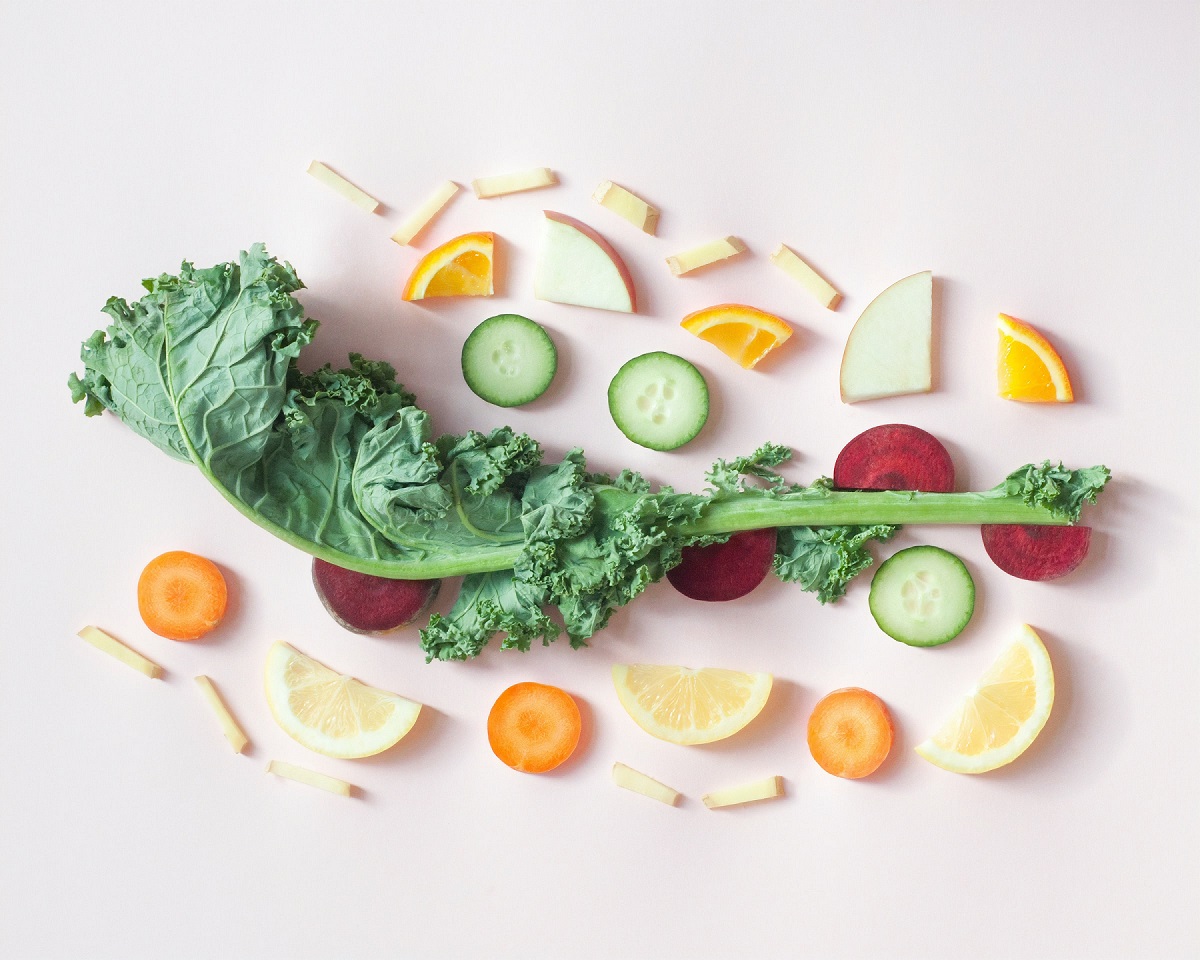
Flaxseeds
Dr Greger can’t recommend these enough in his Daily Dozen checklist. Flaxseeds are nutritional powerhouses. Rich in omega 3 fatty acids and fibre, flaxseeds make it easy to get the goodness your body needs. Stir them into your morning oatmeal or blend in your smoothie.
Serving size:
- 1 tbsp, ground
Nuts and Seeds
Nuts and seeds are also vegan food essentials, offering plenty of goodness despite their small size. Almonds, Brazil, cashew, chia seeds, hazelnuts, hemp seeds, pecans, pistachios, pumpkin seeds, sesame seeds, sunflower seeds and walnuts are all ideal. Nuts make great stand-alone snacks, while seeds work well in yoghurts, oatmeal, smoothies and salads.
Of all the nuts studied, researchers found the greatest benefit was associated with walnuts, particularly for preventing cancer deaths. People who ate more than three servings of walnuts per week appeared to cut their risk of dying from cancer in half.
Serving sizes:
- 30g nuts or seeds – (1 handful)
- 2 tbsp of nut or seed butter
Whole Grains
A considerable amount of what we eat should be whole grains, as they provide key nutrients and energy. Go for barley, brown rice, buckwheat, millet, oats, corn, popcorn, quinoa, freekeh, rye, teff, wholewheat pasta and wild rice.
Serving sizes:
- 100g hot cereal / cooked grains, pasta, sweetcorn kernels
- 50g cold cereal
- 1 tortilla wrap / slice of whole-meal bread
- 30g popped popcorn
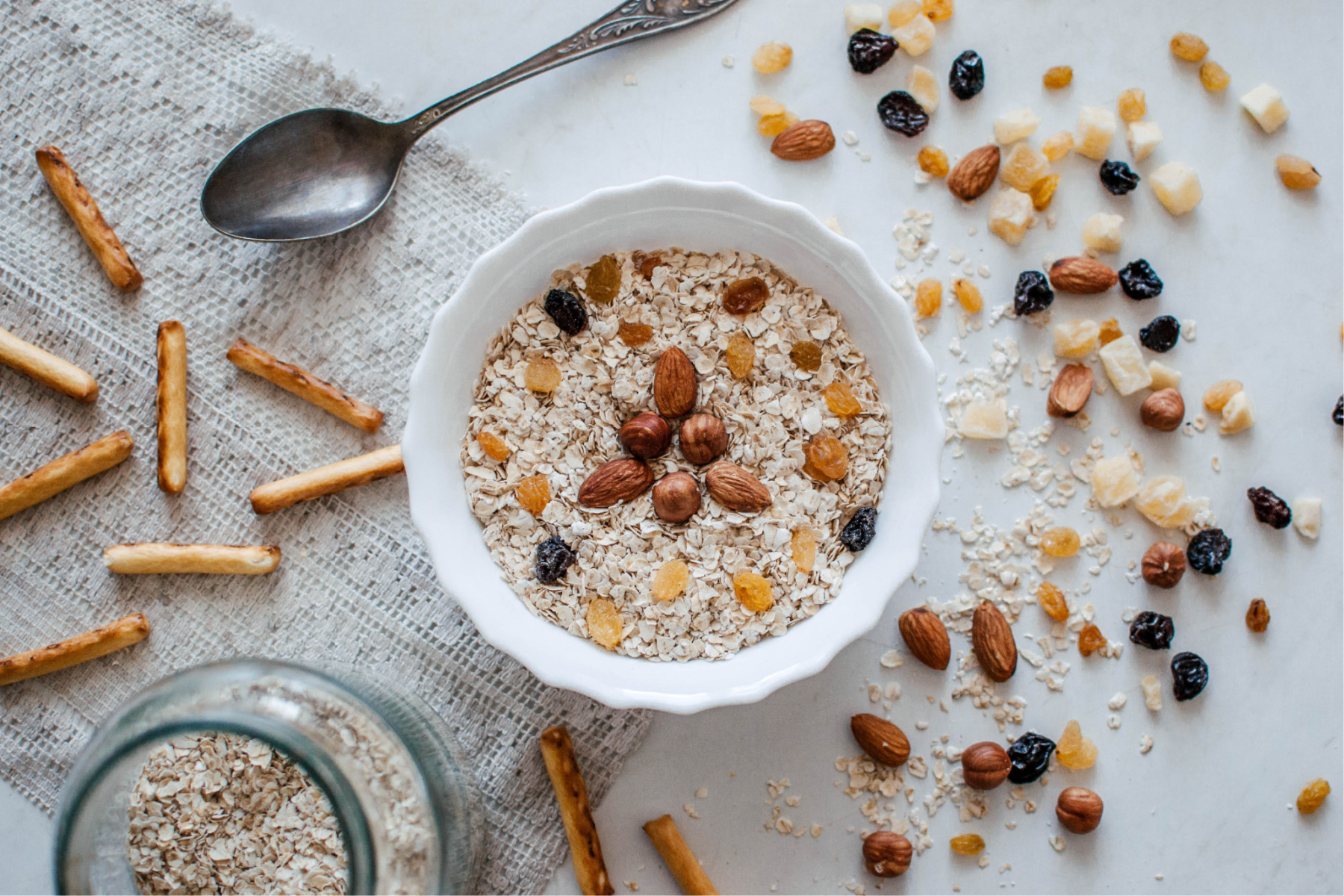
Herbs and Spices
Herbs and spices don’t just provide flavour. Many of them have impressive health benefits, which is why they’re included in the Daily Dozen. For example, research suggests turmeric has anti-inflammatory properties.
Experiment with Allspice, basil, bay leaves, cardamom, chilli powder, cinnamon, cloves, coriander, cumin, curry powder, dill, fenugreek, garlic, ginger, horseradish, lemongrass, marjoram, mustard powder, nutmeg, oregano, smoked paprika, parsley, pepper, peppermint, rosemary, saffron, sage, thyme, turmeric and vanilla.
Serving size:
- 1/4 tsp of turmeric, along with any other (salt-free) herbs and spices.
Beverages
As well as staying hydrated with water, you can enjoy other drinks that are good for you. Dr Greger recommends black tea, chai tea, vanilla, chamomile tea, coffee, earl grey tea, green tea, hibiscus tea, hot chocolate, jasmine tea, lemon balm tea, matcha tea, almond blossom oolong tea, peppermint tea, rooibos tea and white tea.
Serving size:
- 1 glass
When you start using your Daily Dozen checklist and meal planner to keep track of what you eat, you’ll understand vegan nutrition in no time!


